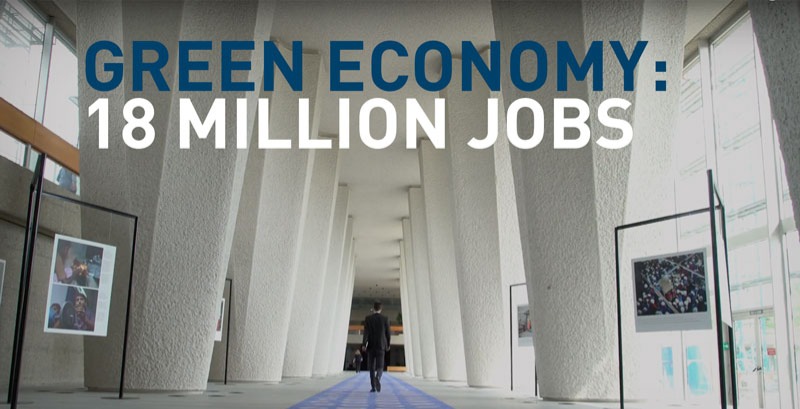Insights - June 22, 2018
Clean energy transition: a massive employment opportunity


Written by Tristan Lebleu
“Each time I speak of protecting the environment to heads of state or government officials, they tell me that it is too expensive. I want to prove them wrong!”
said Bertrand Piccard at the launch of the Solar Impulse Efficient Solution Label in Copenhagen in May
Indeed, protection of the environment has long been perceived as costly and potentially dangerous for growth. But this perception seems to be finally coming to an end, with extensive reports published on the issue.
Recently, a study from the International Labour Organization (ILO) caught our attention. According to their flagship report, named ‘World employment and social outlook 2018: Greening with jobs’, action to limit global warming to two degrees Celsius will result in the net creation of 18 million jobs worldwide by 2030. “For many years, we thought that advancing sustainability would hurt jobs. "With this report, we found that sustainability is compatible with positive employment outcomes” says Guillermo Montt, Senior Economist at ILO, who has been working on the report for the past two years. “At first, the shift to a green economy will destroy 6 million jobs, essentially in petroleum extraction and refining. However, we have studied 163 sectors, and results show that 24 million jobs will be created as a result of the clean energy transition” explains Guillermo.
How and when will these jobs be created?
First big step: the shift from fossil-based energy production, to renewables-based energy production should create 2.1 million jobs. Another big step in job creation is the overall increase of energy efficiency, especially in the building sector, which will create approximately 6 million jobs. Finally, the transport industry will provide many new jobs with the expected increase of electric vehicles production.
Another interesting learning from the report is the very close link between employment and the environment. So not only will the clean energy transition create jobs, but many employments actually depend on a stable and clean environment. “Over 1 billion people have jobs which depend on a stable environment”. This means that protecting the environment could also mean protecting jobs. “The findings of our report underline that jobs rely heavily on a healthy environment and the services that it provides. The green economy can enable millions more people to overcome poverty, and deliver improved livelihoods for this and future generations. This is a very positive message of opportunity in a world of complex choices” ILO Deputy Director-General Deborah Greenfield said at the launch of the report.
“This transition will not happen by itself, out of thin air” warns Guillermo Montt. “We need legal frameworks and incentives to allow this transition to happen”. “All environmental policies should be linked to the workers behind it” says Guillermo. Labor laws should protect workers who will lose their jobs, but also help to implement skills development programs. “If you have incentives to develop solar panels, but you don’t train people to install these solar panels, you won’t benefit from such incentives in terms of job creations.” Therefore, skills development policies are the key to fully unlock the job creation potential of the clean energy transition.
Protection of the environment isn’t just about limiting global warming to a few degrees, trying to save some rare animal, or keeping some invisible gas from entering our atmosphere. Global warming will affect all of us in a very direct way in the upcoming years. Maybe it’s time to implement cleantech solutions?

Written by Tristan Lebleu on June 22, 2018
